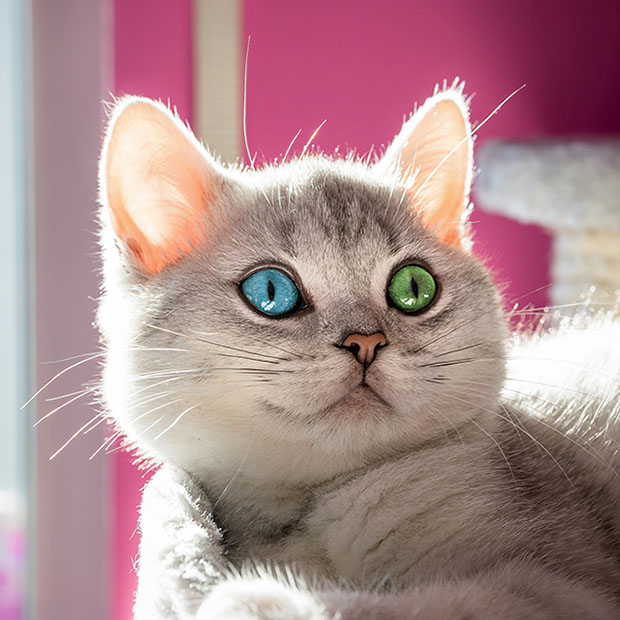Heterochromia: When Eyes Don’t Match

What’s the first thing you notice about a person when you meet them?
Statistically, there’s a good chance it’s their eye color! A striking pair of eyes can really make an impression — and that goes double when they’re two different colors. The scientific term for having different colored eyes is heterochromia, and it affects only six people in every thousand (though it’s much more common in cats and dogs). It can happen in a few different ways and for different reasons.
Types of Heterochromia
Josh Henderson and Alice Eve are famous examples of heterochromia, each with one green eye and one blue. Not all heterochromia involves two completely mismatched irises (which is called complete heterochromia or heterochromia iridium), however. It could also just be one patch of a different color in one iris (segmental heterochromia or heterochromia iridis). A good example of this is Henry Cavill, who has a patch of brown in his left iris.
The most common type of heterochromia isn’t mismatched at all. It’s called central heterochromia, and it’s where the irises have a different color than the main color around the pupils. For instance, Olivia Wilde has blue eyes with rings of brown at the center. It might not be as eye-catching as mismatched irises, but the results are still pretty memorable.
What Causes Heterochromia?
For most people who have it, heterochromia is just a harmless genetic mutation that affects the way pigment develops in their irises, but it can also happen because of an injury or a disease. David Bowie had one permanently dilated pupil that made his eyes appear to be two different colors. Diabetes, eye tumors, and glaucoma can also make the eyes look less like each other. Mila Kunis’s heterochromia comes from having prolonged inflammation in one of her irises.
The Folklore of Heterochromia
Mismatched eyes have meant different things to different cultures throughout history. The pagans of eastern Europe thought they were witch eyes, while some Native American cultures believed they were ghost eyes that had the ability to see into heaven and earth. Modern culture mostly just sees them as being really cool.
However Many Eye Colors You Have, We Want to See Them!
The vast majority of people who weren’t born with heterochromia aren’t going to develop it for injury or disease-related injuries, but any changes you do notice with your eyesight are worth bringing to our attention. If it’s been a while since we last saw you, don’t wait to schedule your next eye exam!
